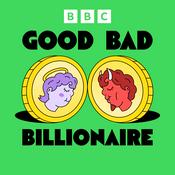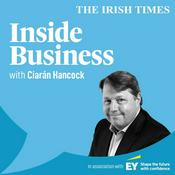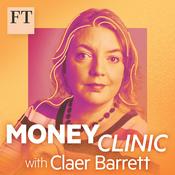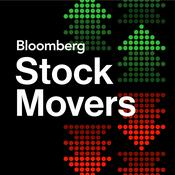436 episodes
- Andre Agassi's autobiography is a brutally honest story about a tennis legend who hated the game that made him famous. Agassi traces his journey from a harsh, obsessive childhood training regimen to superstardom, burnout, rebellion, and eventual redemption—revealing the psychological cost of greatness, the search for identity beyond winning, and how he ultimately found purpose on his own terms.
This book was as good as everyone says it is. You should read it.
Episode sponsors:
Ramp gives you everything you need to control spend, watch your costs, and optimize your financial operations —all on a single platform. Make history's greatest entrepreneurs proud by going to Ramp and learning how they can help your business save time and money.
Automate compliance, security, and trust with Vanta. Vanta helps you win trust, close deals, and stay secure—faster and with less effort. Make sure you go to VANTA.COM/FOUNDERS and you'll get $1000 off.
Collateral transforms your complex ideas into compelling narratives. Collateral crafts institutional grade marketing collateral for private equity, private credit, real estate, venture capital, family offices, hedge funds, oil & gas companies, and all kinds of corporations. Storytelling is one of the highest forms of leverage and you should invest heavily in it. - On his 68th birthday, Kevin Kelly began to write down for his young adult children some things he had learned about life that he wished he had known earlier. Kelly’s timeless advice covers an astonishing range, from right living to setting ambitious goals, optimizing generosity, and cultivating compassion.
Excellent Advice for Living is the ideal companion for anyone seeking to navigate life with grace and creativity:
Episode sponsors:
Ramp gives you everything you need to control spend, watch your costs, and optimize your financial operations —all on a single platform. Make history's greatest entrepreneurs proud by going to Ramp and learning how they can help your business control your costs and save time and money. https://ramp.com
Automate compliance, security, and trust with Vanta. Vanta helps you win trust, close deals, and stay secure—faster and with less effort. Find out how increased security leads to more customers by going to Vanta. Tell them David from Founders sent you and you'll get $1000 off.
Collateral transforms your complex ideas into compelling narratives. Collateral crafts institutional grade marketing collateral for private equity, private credit, real estate, venture capital, family offices, hedge funds, oil & gas companies, and all kinds of corporations. Storytelling is one of the highest forms of leverage and you should invest heavily in it. You can do that by going to https://collateral.com
Some of my favorite quotes from the episode:
1. Choose to believe that the entire universe is conspiring behind your back to make you a success.
2. Mastering the view through the eyes of others will unlock many doors.
3. If you can avoid seeking the approval of others your power is limitless.
4. The reward for good work is more work.
5. Don’t be the best. Be the only.
6. The urgent is a tyrant. The important should be your king.
7. Find smart people who will disagree with you.
8. The main thing is to keep the main thing the main thing.
9. The most counterintuitive truth of the universe is that the more you give to others the more you'll get.
10. Life gets better as you replace transactions with relationships.
11. Courtesy costs nothing.
12. Life lessons will be presented to you in the order they are needed.
13. Cultivate an allergy to average.
14. If you repeated what you did today 365 more times would you be where you want to be next year?
15. If you are alive that means you still have lessons to learn.
16. Master something.Through mastery of one thing you'll command a viewpoint to steadily find where your bliss is.
17. Trust is earned in drops and lost in buckets.
18. First, always ask for what you want. Works in relationships, business, life.
19. If nobody else does what you do you won't need a resume.
20. How to apologize: quickly, specifically, sincerely.
21. You choose to be lucky by believing that any setbacks are just temporary.
22. The best way to advise people is to find out what they really want to do and then advise them to do it.
23. It is certain that 99% of the stuff you are anxious about won't happen.
24. What is important is not what happened to you but what you did about what happened to you.
25. Your golden ticket is being able to see things from other people's point of view.
26. Pay attention to who you are around when you feel best. Be with them more often.
27. To get your message across follow this formula: simplify, simplify, simplify, then exaggerate.
28. You will thrive more when you promote what you love rather than bash what you hate.
29. To be interesting just tell your own story with uncommon honesty.
30. When you truly think for yourself your conclusions will not be predictable.
31. Don’t measure your life with someone else’s ruler.
32. For maximum results focus on your biggest opportunities, not your biggest problems.
33. Pay attention to what you pay attention to. - There's no one like Rick Rubin. He's a legendary music producer known for his minimalist approach and relentless pursuit of greatness. This episode is what I learned from reading Rick Rubin: In The Studio by Jake Brown.
Episode sponsors:
Ramp gives you everything you need to control spend, watch your costs, and optimize your financial operations —all on a single platform. Make history's greatest entrepreneurs proud by going to Ramp and learning how they can help your business control your costs and save time and money. Go to Ramp.com to learn how they can help your business save time and money.
Automate compliance, security, and trust with Vanta. Vanta helps you win trust, close deals, and stay secure—faster and with less effort. Find out how increased security leads to more customers by going to Vanta. Tell Vanta David from Founders sent you and you'll get $1000 off.
Collateral transforms your complex ideas into compelling narratives. Collateral crafts institutional grade marketing collateral for private equity, private credit, real estate, venture capital, family offices, hedge funds, oil & gas companies, and all kinds of corporations. Storytelling is one of the highest forms of leverage and you should invest heavily in it. You can do that by going to Collateral.com
Some of my favorite quotes from the episode:
Less is more but you have to do more to get less.
Designing a product is keeping 5,000 things in your brain and fitting them all together in new and different ways. (Steve Jobs)
Rubin's most valuable quality is his own confidence.
If we're going to do this, let's aim for greatness. You have to believe what you're doing is the most important thing in the world.
Everybody engaged in complicated work needs colleagues. Just the discipline of having to put your thoughts in order with somebody else is a very useful thing. (Charlie Munger)
The key to it is doing what you believe in, as opposed to what you think is going to work. There were never any plans to make anything happen. I just did what I liked and believed in it, and luckily it all worked out.
These things that we don't understand and cannot explain happen regularly.
The amateur mind possesses a valuable lack of knowledge about rules when matched with passion and gumption gravity ceases to exist and new things take flight.
To be ignorant of what occurred before you were born is to remain always a child. (Cicero)
I believe in you so much, I'm going to make you believe in you.
I try to make records that have a timeless quality. - "I set out to write a book about what to do to make a great work of art. Instead, it revealed itself to be a book on how to be.” —Rick Rubin. This episode is what I learned from reading The Creative Act: A Way of Being by Rick Rubin.
Episode sponsors:
Ramp gives you everything you need to control spend, watch your costs, and optimize your financial operations —all on a single platform. Make history's greatest entrepreneurs proud by going to Ramp.com and learn how they can help your business control your costs and save time and money.
Automate compliance, security, and trust with Vanta. Vanta helps you win trust, close deals, and stay secure—faster and with less effort. Find out how increased security leads to more customers by going to Vanta. Tell them David from Founders sent you and you'll get $1000 off. https://www.vanta.com/founders
Collateral transforms your complex ideas into compelling narratives. Collateral crafts institutional grade marketing collateral. Storytelling is one of the highest forms of leverage and you should invest heavily in it. You can do that by going to https://collateral.com
Some of my favorite quotes:
(00:00) Just one habit, at the top of any field, can be enough to give an edge over the competition.
(1:00) It must have been frustrating for these elite athletes, who wanted to get on the court and show what they could do, to arrive at practice for the first time with this legendary coach only to hear him say, Today we will learn to tie our shoes.
The point Wooden was making was that creating effective habits, down to the smallest detail, is what makes the difference between winning and losing games.
Each habit might seem small, but added together, they have an exponential effect on performance.
Just one habit, at the top of any field, can be enough to give an edge over the competition.
(8:41) Faith allows you to trust the direction without needing to understand it.
(10:16) If you make the choice of reading classic literature every day for a year, rather than reading the news, by the end of that time period you’ll have a more honed sensitivity for recognizing greatness from the books than from the media.
This applies to every choice we make. The friends we choose, the conversations we have, even the thoughts we reflect on. All of these aspects affect our ability to distinguish good from very good, very good from great. They help us determine what’s worthy of our time and attention.
Because there’s an endless amount of data available to us and we have a limited bandwidth to conserve, we might consider carefully curating the quality of what we allow in.
(14:25) We’re affected by our surroundings, and finding the best environment to create a clear channel is personal and to be tested.
(27:57) Rules direct us to average behaviors. If we’re aiming to create works that are exceptional, most rules don’t apply. Average is nothing to aspire to. The goal is not to fit in. Communicate your singular perspective.
(28:30) It’s a healthy practice to approach our work with as few accepted rules, starting points, and limitations as possible. Often the standards in our chosen medium are so ubiquitous, we take them for granted. They are invisible and unquestioned.
(29:00) The world isn’t waiting for more of the same. Often, the most innovative ideas come from those who master the rules to such a degree that they can see past them or from those who never learned them at all.
(38:50) Fear of criticism. Attachment to a commercial result. Competing with past work. Time and resource constraints. The aspiration of wanting to change the world. And any story beyond “I want to make the best thing I can make, whatever it is” are all undermining forces in the quest for greatness.
(42:32) To hone your craft is to honor creation. By practicing to improve, you are fulfilling your ultimate purpose on this planet. - In 2024 Brad Jacobs wrote the book How to Make a Few Billion Dollars.
In the book Brad explains how he built 8 separate billion dollar companies and other lessons from his 40+ year career as an elite entrepreneur.
In the two years since Brad has made a few MORE billion dollars and so the sequel to his first book is: How to Make a Few MORE Billion Dollars.
In this episode I share some of Brad's ideas on raising tons of money (Brad has raised over $50 billion), mastering his integration playbook, ideas for organizational integration, org chart design, and how Brad keeps his mind centered and in a positive place to handle the inevitable ups and downs of building great companies.
Episode sponsors:
Ramp gives you everything you need to control spend, watch your costs, and optimize your financial operations —all on a single platform. Make history's greatest entrepreneurs proud by going to Ramp and learning how they can help your business control your costs and save time and money. https://ramp.com
Automate compliance, security, and trust with Vanta. Vanta helps you win trust, close deals, and stay secure—faster and with less effort. Find out how increased security leads to more customers by going to Vanta. Tell them David from Founders sent you and you'll get $1000 off. https://vanta.com/founders
Collateral transforms your complex ideas into compelling narratives. Collateral crafts institutional grade marketing collateral for private equity, private credit, real estate, venture capital, family offices, hedge funds, oil & gas companies, and all kinds of corporations. Storytelling is one of the highest forms of leverage and you should invest heavily in it. You can do that by going to https://collateral.com
More Business podcasts
Trending Business podcasts
About Founders
Learn from history's greatest entrepreneurs. Every week I read a biography of an entrepreneur and find ideas you can use in your work.
This quote explains why: "There are thousands of years of history in which lots and lots of very smart people worked very hard and ran all types of experiments on how to create new businesses, invent new technology, new ways to manage etc. They ran these experiments throughout their entire lives. At some point, somebody put these lessons down in a book. For very little money and a few hours of time, you can learn from someone’s accumulated experience. There is so much more to learn from the past than we often realize. You could productively spend your time reading experiences of great people who have come before and you learn every time." —Marc Andreessen
Podcast websiteListen to Founders, The Diary Of A CEO with Steven Bartlett and many other podcasts from around the world with the radio.net app
Get the free radio.net app
- Stations and podcasts to bookmark
- Stream via Wi-Fi or Bluetooth
- Supports Carplay & Android Auto
- Many other app features
Get the free radio.net app
- Stations and podcasts to bookmark
- Stream via Wi-Fi or Bluetooth
- Supports Carplay & Android Auto
- Many other app features

Founders
Scan code,
download the app,
start listening.
download the app,
start listening.




































